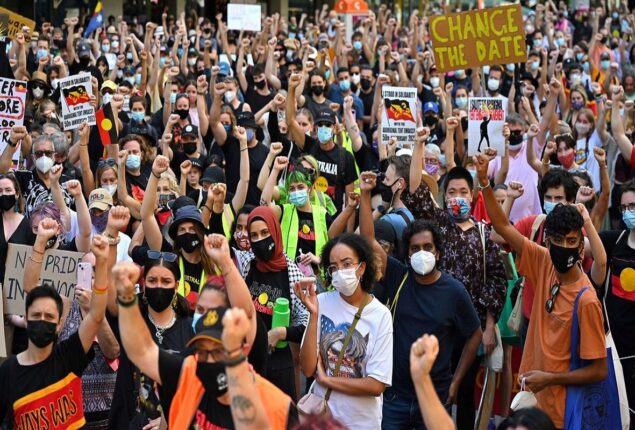An Australian man was killed by a wild kangaroo that used to be his pet
77-year-old man found with "serious injuries" on his property in southwest Australia....

Australia is posing a single query to its citizens
Within 24 hours of the demise of Queen Elizabeth II, the carefully planned Australian reaction to the loss of its Head of State began to show its first signs of weakness.
Players stood to attention on Friday during a broadcast game between Australian Football League Women’s (AFLW) clubs in Melbourne to hear an Acknowledgement of Country, which was immediately followed by a minute of silence for the Queen.
The contrast of a claim that players were on “unceded” Indigenous land and a tribute to the nation’s former ruler, who claimed it, made some people uneasy.
All other moments of silence for AFLW games had been cancelled by Saturday, and the Western Bulldogs’ club director issued a statement saying that the homage “unearths profound scars for us.”
The tragedy highlights the ongoing suffering endured by Australia’s First Nations people since British invaders began colonizing their land in 1788. The death of the Queen has sparked rumblings—some louder than others—in other Commonwealth Nations about proposals to replace the British monarchy with a republic.
However, despite Australian Prime Minister Anthony Albanese’s support for the republic, there isn’t a deliberate effort to move in that way.
It is famously difficult to change the constitution since it requires the majority of Australians nationwide and in most states to vote “yes” in a referendum. Only eight of the 44 constitutional amendment proposals that have been made since Federation in 1901 have been accepted.
When the nation’s voters were asked if they wished to replace the Queen and Governor-General with a President, the final rejection occurred in 1999.
Campaigning at the time centered on severing connections with an antiquated monarchy and forging forth as a brave new multicultural nation determined to forge its own destiny. Although Australia’s citizens were asked to accept a new preamble to the constitution that recognized First Nations people for their “kinship with their lands,” indigenous concerns weren’t a top priority.
Elderly Aboriginal people of the time complained they hadn’t been consulted on the wording, which led to that failure as well.
It wasn’t unexpected. Indigenous people have long complained that successive governments have not listened to their concerns; in 1999, Yawuru man Peter Yu, who is currently Vice President First Nations at the Australian National University (ANU), decided to take their message to the Queen on the advice of a local elder.
Yu said that an extremely senior authority advised her to see the elderly woman abroad because people in her home country refer to her incorrectly. According to Yu, the elderly guy was implying that the only time Aboriginal people encountered the name of the Queen was during an arrest. They believed that the Queen’s name and reputation were being tarnished because of the community’s respect for her.
Catch all the World News, Breaking News Event and Latest News Updates on The BOL News
Download The BOL News App to get the Daily News Update & Follow us on Google News.